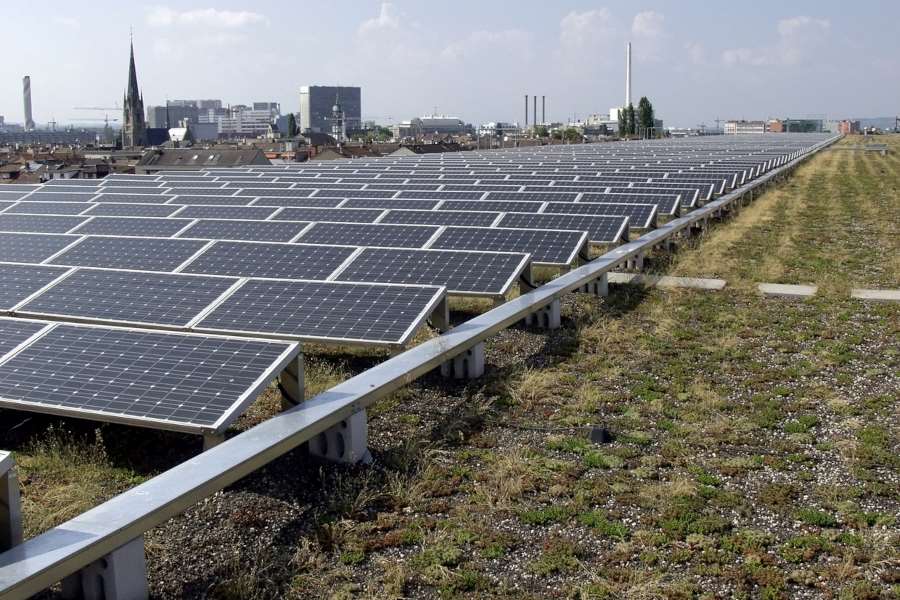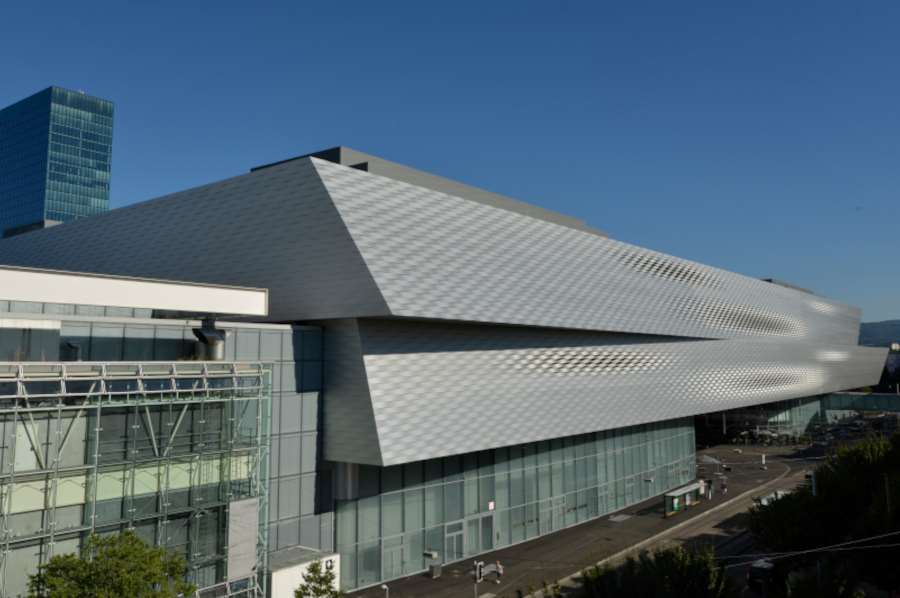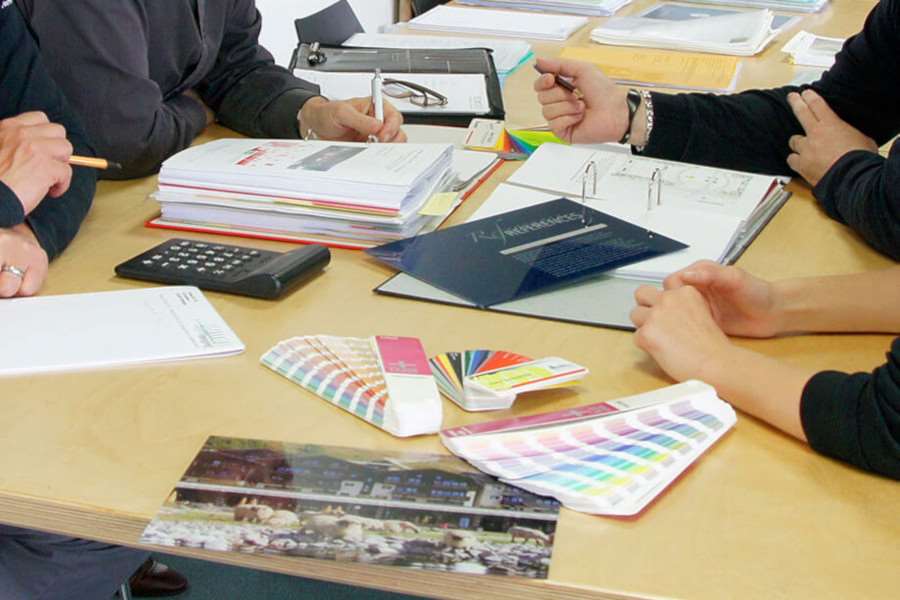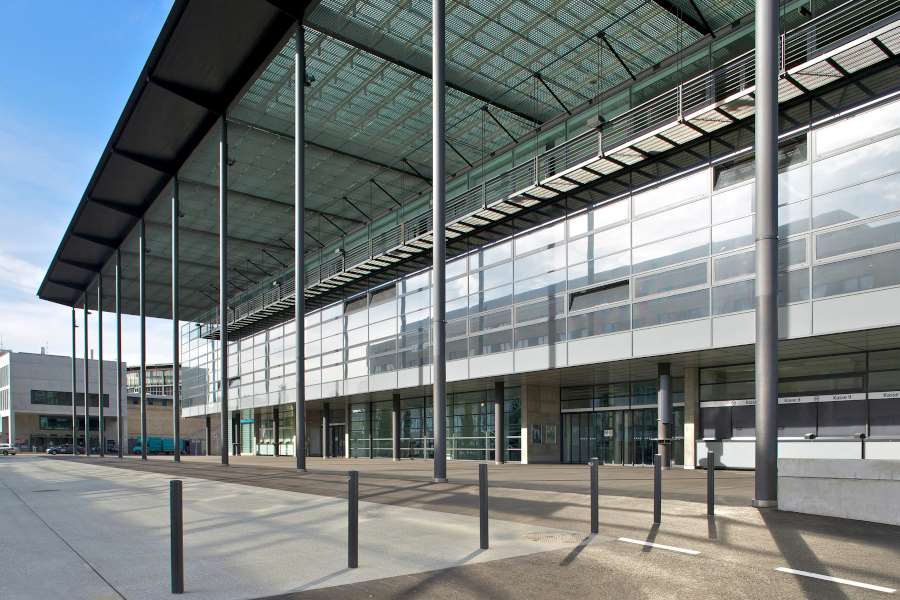Sustainability
Corporate success requires sustainable economic, ecological and social performance. Sustainable thinking and action have shaped the MCH Group’s more than 100-year history and will also determine the path it adopts in future. The MCH Group thus endeavours to promote sustainable behaviour in all areas and at all levels and to constantly improve its economic, ecological and social sustainability indicators.
The MCH Group’s business activity and company structure have a high economic, ecological and social sustainability value. Its business activity contributes to the business success of numerous companies. It unites significant economic and environmental benefits, since it replaces a large number of individual activities and journeys. It generates major economic impacts from which numerous industries benefit. The public sector’s participation in the holding company and its representation on the Board of Directors safeguards the interests of the Basel and Zurich locations. At the same time, the shareholders and their representatives on the Board of Directors ensure the that the company has a private-sector and success-oriented focus too.
Linking economic, environmental and social effects
The MCH Group thus endeavours to promote sustainable behaviour at all levels and to constantly improve its economic, ecological and social sustainability indicators. Its corporate strategy and the further development of the products and services it offers are geared to securing the company’s long-term success. It continually invests in ecologically optimising its buildings and systems and the way in which it organises and stages events. It supports its employees in conducting themselves in a legally and ethically correct and responsible manner.
Economics
The MCH Group’s value chain divides up into three areas which are mutually conducive but can also function independently of each other. It organises and runs physical and digital community platforms for different ecosystems. It operates its own infrastructure in Basel and Zurich and, at these locations, supervises its own physical events together with numerous third-party events (third-party exhibitions, congresses and other events). It supports a wide range of clients worldwide in the entire experience marketing field, with holistic solutions extending from strategy to creation and right through to implementation.
Swissbau
In 2019, the MCH Group launched a far-reaching transformation process to align itself to future demands in strategic and operational terms, as well as at a structural and organisational level. Despite the Covid-19 pandemic, the group has, in the 2020 financial year, created a strong basis for its further transformation and the start of a successful future.
Securing the long-term success of the company for the benefit of all stakeholder groups
A number of studies show that exhibition companies produce indirect returns that are eight to ten times greater than their own turnover. Only 20 to 25 % of the expenditure incurred by an exhibiting company when it participates in an exhibition goes to the exhibition organisers. Some 75 to 80 % of expenditure goes to different suppliers and service providers.
There are also other effects that cannot be expressed in figures – in particular, the positive impact of successful marketing platforms for the industries and companies involved. At the locations at which live events are staged, these events frequently have a "lighthouse effect" for tourism through their reach and appeal, which are transmitted to the city or country in question.
In the 2020 financial year, the MCH Group secured the continued existence of the company through the successfully conducted capital increases. The group also made intensive progress on key strategic initiatives and acquired a new anchor shareholder in Lupa Systems, which has taken on a long-term commitment, fully supports the corporate strategy and will actively help shape its implementation with a great deal of fresh impetus. And, through its new appointments to the Board of Directors, Lupa Systems is further boosting our industry knowledge, international experience and networking, together with our innovative strength and management competence.
Ecology
The reporting on ecological sustainability is centred on the MCH’s own two exhibition sites in Basel and Zurich which, as “production locations”, are of major relevance for the environment. The exhibition and event constructions made by LMS Switzerland (Expomobilia) are a further point of focus.
Swissbau Focus
Almost 90 % of the overall energy requirements of the Basel and Zurich exhibition sites are met by renewable energies. All the electricity consumed comes from renewable sources. Photovoltaic systems on the roofs of Messe Basel and Messe Zurich and also at the Expomobilia location in Effretikon produce solar electricity for some 400 single-family homes with four-person households. Hall 1 South at Messe Basel has been awarded the BS-054 Minergie Label.
Continuous optimisation of ecological indicators
A long life, multiple use, environmentally-friendly and energy-efficient production, recyclable or biodegradable materials: great importance is also attached to sustainability in stand construction and at partner companies – as well as in the area of logistics.
Energy and emissions
Energy consumption and emissions at Messe Basel, Messe Zurich and LMS Switzerland (Expomobilia) in 2020 reflect the fact that business activity was restricted due to the Covid-19 pandemic, and the figures are thus significantly lower than for the previous year.
Energy consumption and emissions for Messe Basel (without administrative buildings)
Energy consumption at the Basel exhibition site more than halved in 2020 (-53.5 %). At the same time, the share of renewable energy was stepped up further to 94.2 % (2019: 90.5 %).
Emissions were cut by a total of 66.9 % – direct emissions (for heating and motor fuels) by 66.7 % and indirect emissions (for electricity and district heating) by 46.0 %.
Energy consumption and emissions at Messe Zurich
At the Zurich exhibition site, energy consumption was 39 % lower than in the previous year (electricity: - 41.3 %. district heating -32.4 %). The share of renewable energy increased slightly to 81.8 % (2019: 78 %).
Emissions were cut by a total of 44.2 % – direct emissions (for heating and motor fuels) by 57 % and indirect emissions (for electricity and district heating) by 34.0 %.
Energy consumption and emissions LMS Switzerland (Expomobilia)
Expomobilia consumed 21 % less energy in 2020 than in the previous year. Consumption of heating and motor fuels fell by 33.0 %, electricity by 18.2 %, district heating by 12.1 %. The share of renewable energy increased again slightly to 39.6 % (2019: 38.1 %).
Emissions were cut by a total of 28.7 % – direct emissions (for heating and motor fuels) which account for the biggest share – by 38.8 % and indirect emissions (for electricity and district heating) by 11.9 %.
Solar energy
A photovoltaic system was installed on the roof of Hall 1 North in Basel in 1999 already, making it possible to use solar energy. Vegetation was also planted on the roof at the same time. The panels have an area of 1,900 m2 and an output of 215,000 kWh per year. A system four times this size was set up on the green roof of Hall 1 South which was completed in 2013. This photovoltaic system, which was installed in cooperation with an investor, feeds approximately 1,080,000 kWh electricity annually into the grid of the Basel energy utilities company (IWB), which took over the system in 2014.

Messe Basel | Photovoltaic system
The MCH Group also supports the "Wettstein 21" platform, which was responsible for installing a further photovoltaic system on the roof of the Congress Center Basel. This was completed at the end of 2014 and delivers around 180,000 kWh electricity each year. The roof space was made available free of charge.
Since 2009, a photovoltaic system with a panel area of 1,200 m2 and an output of 150,000 kWh per year has been in operation on the roof of Messe Zürich.
Expomobilia operates two photovoltaic systems at its Effretikon site with a total surface area of 3,000 m2. These generate approximately 435,000 MWh per year.
Minergie certificate
During the construction of Hall 1 South at Messe Basel, which was completed in 2013, great importance was attached to achieving the highest possible energy efficiency, both in respect of the insulation for the building shell and with regard to the provision of the necessary heating and cooling energy in a resource-saving manner. All heating, ventilation and refrigeration systems are operated only when required, and the majority of the waste heat generated is used.

Messe Basel | Hall 1 South
The Basel-Stadt Minergie certification agency awarded the BS-054 Minergie Label that was developed especially for this exhibition hall building. In addition, the target values of SIA Standard 380/4 are met by this, the newest exhibition hall, in respect of lighting and ventilation/air-conditioning.
Stand construction & fittings
LMS Switzerland (Expomobilia) offers a wide range of resource-saving, reusable or biodegradable materials, including wooden partition walls from environmentally-certified local suppliers and reusable parquet flooring in locally-sourced wood. The lights are equipped primarily with state-of-the-art, long-life LED bulbs with a low energy consumption.

Expomobilia | Project management
A CO2 climate protection calculator for exhibition stands and interior fittings helps customers make sure that their exhibition stand is 100 % climate-neutral or assists them in offsetting their emissions. This was developed specially for the purpose by Expomobilia in cooperation with myclimate, the Swiss nonprofit foundation for voluntary climate protection.
MC2 is committed to environmentally friendly and sustainable business operations. Environmental responsibility is applied in all areas, from the selection of materials to logistical supply and installation. MC2 aims to be a leader in sustainability in all its business operations, including the design, production, delivery and disposal of its products. In the construction of temporary infrastructure, where many different materials are used, MC2 strives to find the most environmentally neutral products and service providers.
One example: the EcoFlex™ Thunder rental system, comprising a recycled and recyclable aluminum frame covered in silicon-edged fabric. Its lightness and easy transportability contribute to significantly reduced carbon emissions. And, it can be used again and again. Seamless graphic panels using silicon-edged fabric (SEG) technology are printed using a soy-based process that produces stunning graphics in virtually any size. Inks and fabric are also environmentally friendly and can be fully recycled after the show.
Logistics
Delivery traffic to Messe Basel is steered via a checkpoint-based system, for which a corresponding online tool has been developed. This keeps traffic searching for parking spaces and traffic congestion to a minimum. Deliveries are made underground whenever possible. To ensure that the entire logistics of journeys to and from Messe Basel can be controlled in the optimum manner, all movements within the exhibition site are performed or directed by Sempex, Messe Basel's logistics partner. Sempex has developed a quality management system to ISO 9001.

Messe Zürich | Delivery zone
Delivery traffic to Messe Zürich is steered via a checkpoint-based system. This keeps traffic searching for parking spaces and traffic congestion to a minimum. Attention is also paid to achieving optimum occupancy of the delivery levels. To ensure that the entire logistics of journeys to and from Messe Zürich can be controlled in the optimum manner, all movements within the exhibition site are performed by Messe Zurich's logistics partner, Securitas. Together with Securitas, the logistics officer at Messe Zürich continually checks that the specified measures for attaining the environmental and energy targets are implemented.
Social
The MCH Group subscribes to the fundamental values of a democratic state governed by the rule-of-law and a free market economy. The MCH Group regards compliance with the statutory provisions and the application of serious business practices as a matter of course. It assumes its responsibility to society and all its stakeholders.
Swissbau Innovation Lab
In 2018, the MCH Group introduced a Code of Conduct which supports employees in adopting a legally and ethically correct and responsible form of behaviour. It sets out guidelines in respect of the local setting, bribery and unfair advantages, gifts and invitations, conflicts of interest, the award of contracts, competition and anti-trust law, inside information and insider trading, data protection and behaviour towards coworkers. It also describes the procedure to be adopted in the event of alleged or actual infringements.
Commitment to the fundamental values of a democratic state governed by the rule-of-law and a free market economy
An anti-corruption agreement has been part of the General Terms of Employment of the MCH Group since 1992 and this is signed by all employees as part of their contract of employment. The provisions governing the admission of exhibiting companies provide protection against the risk of passive corruption. These are based on clear-cut criteria that are set out in the Exhibition Regulations.
The MCH Group’s brands constitute a significant enterprise value. Brand protection provides legal security and is a clear indication that the intellectual property rights of the corresponding brand belong to the MCH Group and are also protected by the group. At present, some 250 word and picture brands are registered for the MCH Group at the Swiss Federal Institute of Intellectual Property (IGE) in Bern.
In 2018, Art Basel launched the "Art Basel Art Market Principles and Best Practices" that set out Art Basel’s expectations of its exhibitors in respect of their responsibility towards artists, suppliers of works of art, buyers and their industry. At the same time, a procedure was defined for potentially criminal acts. With these additions to the Exhibitor Regulations, Art Basel is making a contribution towards strengthening the international art market that is based on trust and provides protection and support for the artists.